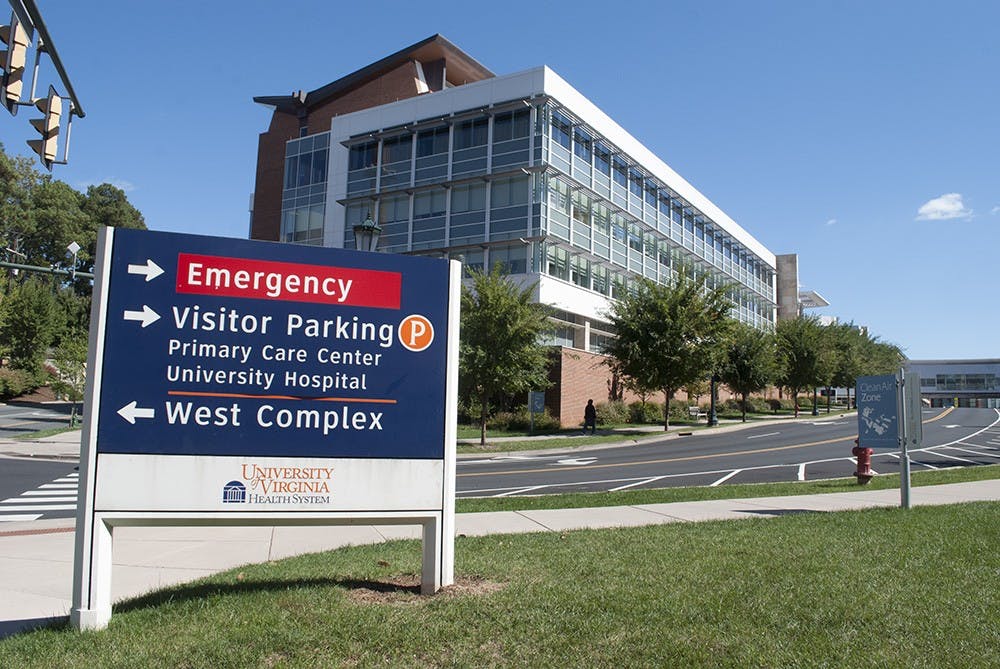A Texas nurse has been infected with Ebola on American soil, after treating a Liberian man who died from the virus in Dallas Oct. 8. As the Center for Disease Control and other governmental agencies work to combat the spread of the outbreak, the Virginia Department of Health and the University Medical Center have become involved in preparing ways to prevent a potential domestic outbreaks.
Ebola is a hemorrhagic fever with symptoms including fatigue, headache, vomiting, and unexplained hemorrhages. On average, these symptoms present themselves eight to 10 days after exposure, which can either be direct or indirect. The disease is spread through bodily secretions.
“We have had a plan in place since this summer to safely care for potential Ebola patients while protecting the health of our team members and the public,” Medical Center spokesperson Eric Swensen said. “Our plan was tested in September, when we ruled out Ebola in a patient who came to the Medical Center.”
Some highlights of the planning effort include the use of a screening tool to identify patients who may have Ebola symptoms. The care of Ebola patients would also be tightly restricted by directly admitting potential patients to one unit in the hospital. Furthermore, education and training for the staff began in September and is still ongoing.
“We think the risk is low that a patient with Ebola will come to the Medical Center,” Swenson said. “However, we cannot completely rule out the possibility. That is why we have been working on our planning efforts since this summer. As the situation evolves, we are continuing to review and update our plan as needed to ensure the safety of our staff, patients and the public.”
Many Virginia public school systems are taking strong precautionary measures to minimize the risk of spreading the disease. In general, students who have recently traveled to West Africa are allowed to continue attending classes, as long as they exhibit no symptoms of illness.
All students running a fever will be required to stay home, and in this case the school’s health office would contact the student’s family to discuss recent travel history. In certain schools, enrollment forms will now ask if either the student or any of their family members have recently traveled to West Africa.
Likewise, the Virginia Department of Health has implemented several new policies designed to reassure citizens and prepare for worst-case-scenarios. In an online news release, the VDH said it intends to “keep the community informed and … ensure if there is any risk, the appropriate public health actions will be taken.” According to the release, “epidemiologists conduct contact investigations and follow-ups, work with hospitals to ensure infection control protocols and answer questions, provide patient consultation and facilitate lab testing.”
Additionally, passengers arriving at the Washington Dulles Airport from certain West African nations will be screened for symptoms and asked about activities which could potentially have put them at risk. If an Ebola case is identified, the health department has outlined a clear response procedure, which would include the collection of as much information as possible, thorough care for the patient, and extensive measures to inform the public of the situation.
“If someone with Ebola came to Virginia, it is very unlikely it would spread widely like the outbreak in West Africa,” the VDH release said. “That is because Virginia and other states in the United States have a strong health care infrastructure. Modern hospitals use procedures to prevent the disease from spreading, and public health officials would work to identify those at risk of infection to prevent them from spreading it to other people.”
There is no cure for Ebola approved by the Food and Drug Administration, though treatments are currently being developed. In the meantime, hospitals and emergency responders are being trained to handle a potential Ebola case in such a way that puts themselves and other citizens at minimal risk.







